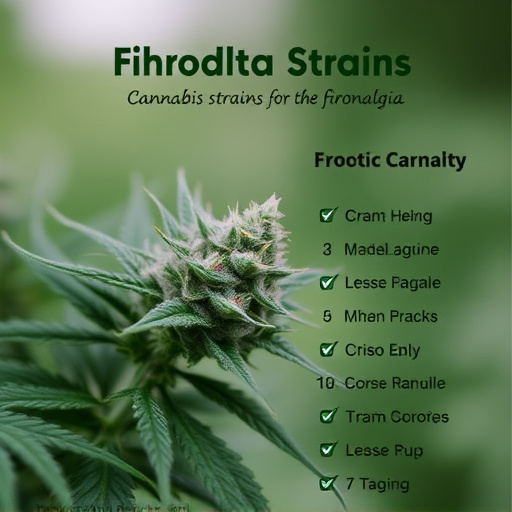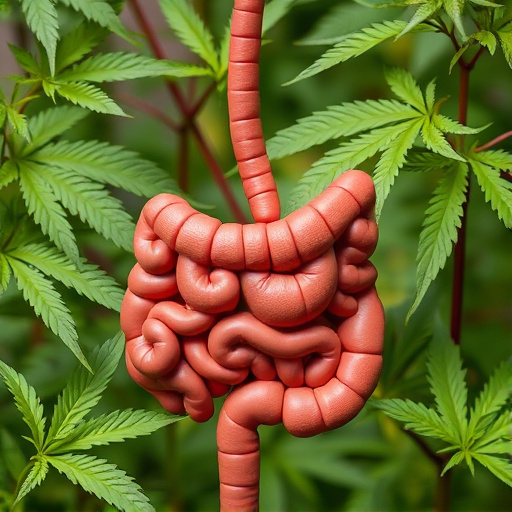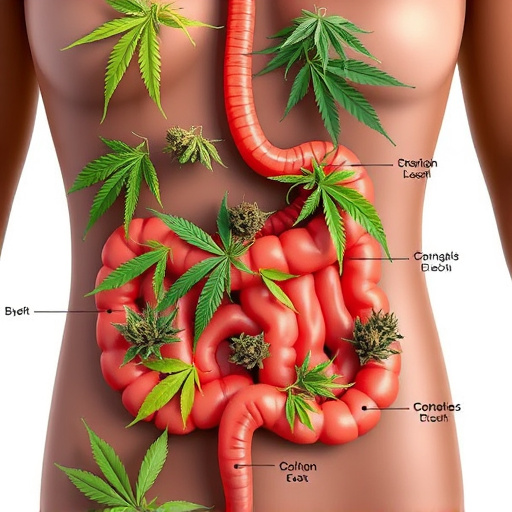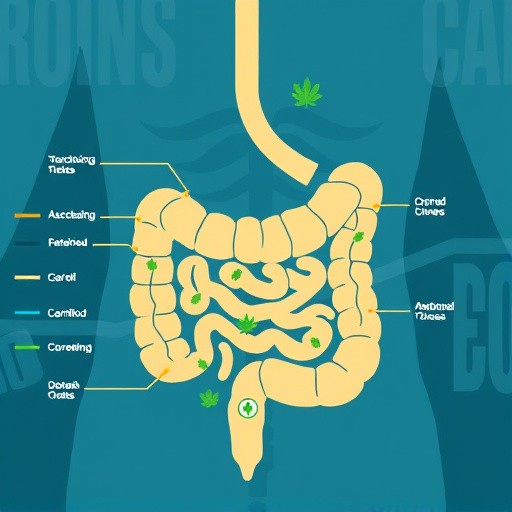Cannabis offers a promising holistic approach to managing Crohn's Disease symptoms through specific strains with tailored cannabinoid profiles. CBD reduces inflammation and blocks pain signals, while THC aids in pain management and appetite stimulation. Balancing benefits and risks is crucial, as side effects like dizziness and drowsiness are associated with THC use. Ongoing research aims to identify effective strains and optimize delivery methods, potentially transforming pain management practices for Crohn's patients.
“Unraveling the science behind THC and CBD as powerful tools for pain management, this article delves into the complex relationship between cannabis and the human body. We explore how these compounds interact with our endocannabinoid system, offering potential relief for chronic conditions like Crohn’s Disease. From understanding the basics of THC and CBD to discovering specific cannabis strains effective for targeted pain reduction, this guide provides insights for both medical professionals and patients. Furthermore, we discuss safety measures and emerging research directions, highlighting the promising future of cannabis in pain management.”
- Understanding THC and CBD: The Role in Pain Perception
- Cannabis Strains for Crohn's Disease: A Targeted Approach
- Safety Considerations and Future Research Directions
Understanding THC and CBD: The Role in Pain Perception

Cannabis has gained attention for its potential pain-relieving properties, particularly when it comes to managing conditions like Crohn’s disease. Two key compounds responsible for this effect are THC (Tetrahydrocannabinol) and CBD (Cannabidiol). While THC is known for its psychoactive effects, triggering feelings of euphoria, it also plays a role in modulating pain perception. It interacts with endocannabinoid receptors in the brain and nervous system, which helps reduce inflammation and block pain signals.
CBD, on the other hand, doesn’t produce any psychoactive effects. Instead, it works by interacting with various receptors and enzymes involved in pain transmission and inflammation. Studies suggest that CBD can inhibit certain enzymes responsible for producing pro-inflammatory chemicals, thus reducing pain and discomfort associated with conditions like Crohn’s disease. The combination of THC and CBD in specific cannabis strains offers a promising approach to managing pain holistically, addressing both the physical symptoms and potential psychological aspects of chronic conditions.
Cannabis Strains for Crohn's Disease: A Targeted Approach

Cannabis has been used for centuries as a natural remedy, and in recent years, its potential to manage various medical conditions, including Crohn’s Disease, has gained significant attention. Specific cannabis strains have shown promise in alleviating symptoms associated with this chronic inflammatory bowel disease (IBD).
For individuals suffering from Crohn’s, certain cannabis strains can offer targeted relief. These strains often contain high levels of cannabidiol (CBD) and varying concentrations of tetrahydrocannabinol (THC), the primary psychoactive compound. CBD is known for its anti-inflammatory properties, which can help reduce intestinal inflammation and promote healing. THC, on the other hand, may aid in managing pain and stimulating appetite, common challenges faced by Crohn’s patients. By selecting strains with specific cannabinoid profiles, individuals can tailor their treatment to address these particular symptoms, providing a more effective and personalized approach to pain management.
Safety Considerations and Future Research Directions

When considering cannabis for pain management, it’s crucial to balance potential benefits with safety considerations. While THC and CBD have shown promise in treating chronic pain, including symptoms associated with conditions like Crohn’s disease, their use isn’t without risks. The most common side effects include dizziness, drowsiness, and increased heart rate, which can be more pronounced at higher doses or when consumed by inexperienced users. Additionally, long-term effects of regular cannabis use are not yet fully understood, particularly for younger individuals whose brains are still developing.
Future research directions focus on identifying specific cannabis strains most effective for different types of pain, as well as understanding the optimal delivery methods to minimize side effects. Exploring the role of CBD in mitigating THC’s psychotropic effects while preserving its analgesic properties is another key area of interest. Further studies could lead to evidence-based guidelines for safe and effective cannabis use in various medical conditions, including Crohn’s disease, potentially revolutionizing pain management approaches.
THC and CBD, two prominent compounds in cannabis, offer promising avenues for pain management. While THC influences pain perception, CBD exhibits anti-inflammatory properties, providing potential relief for conditions like Crohn’s disease. As research progresses, exploring specific cannabis strains tailored to Crohn’s could revolutionize treatment methods. Safety considerations remain paramount, underscoring the need for further studies to unlock the full therapeutic potential of these natural compounds.














